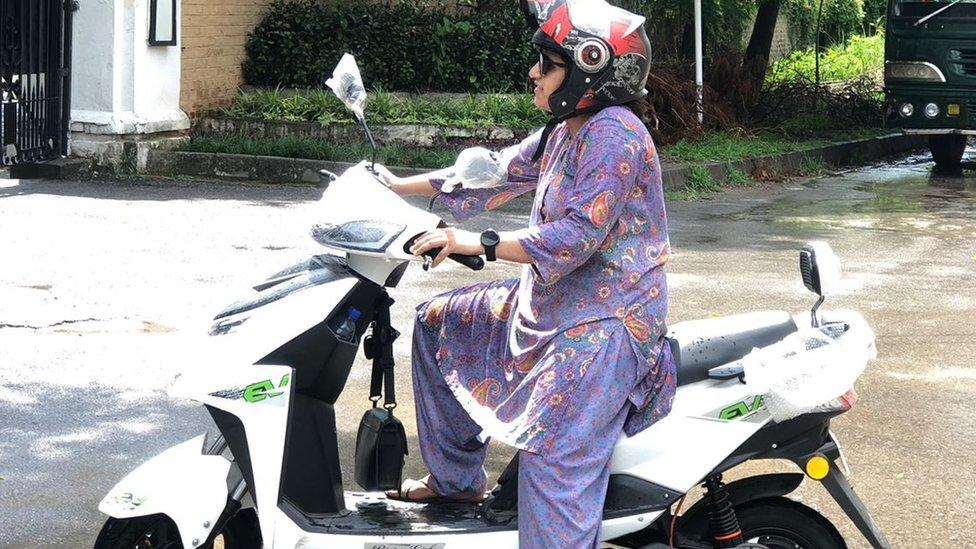Pakistan: Aberystwyth uni buys students mopeds to stop abuse
- Published

Female students say they can now independently travel to university without fear
A university has donated four mopeds to students in Pakistan in a bid to stop sexual harassment putting women off education.
£2,000 was spent as part of the Aberystwyth University project, which is aimed at female students aged 18-25.
Each can borrow a moped throughout their course and get trained to use it.
It comes as many Pakistani women quit their studies due to sexual harassment on public transport while getting to and from their college or university.
Dr Shala Tabassum, head of gender studies at Fatima Jinnah Women University in Rawalpindi, Pakistan, said: "Public transport in Pakistan is predominantly made for and used by men.
"Young women are often harassed and humiliated when they take the bus or train, and many decide not to continue with their education so they can avoid commuting problems like this.
"This project aims to dispel stereotypes and remove some of the cultural restrictions placed on young women's mobility."
One student, Noor-ul-Hada, said she was "incredibly grateful for the opportunity", adding: "Now I can travel independently, free from any hassle or inconvenience, and truly embrace the freedom it offers."
Another, Iqra Waheed, added: "As I ride into the future on my new scooty, I am determined to continue pushing boundaries, chasing dreams, and making a positive impact in my community."
The project is one of four community transport initiatives to each get £2,000 through the Transport and Health Integrated research Network, external.
The other recipients, all Wales-based, are Age Connects Morgannwg, Social Inclusion through community-led transport and Encouraging Active Travel In Newtown.
Aberystwyth University's Prof Charles Musselwhite, who co-leads the project, said: "This seed funding should provide a stepping stone to further research, in order to deepen understanding of the transport issue in question and begin to create strategies or interventions to mitigate or reduce its negative impact."

JOHN RUTLEDGE IS ON A QUEST: Can Mushrooms Save the World?
FIFTY-FIVE YEARS ON: What were Mary Hopkin's career highlights?

- Published18 July 2023

- Published28 December 2017

- Published9 November 2021
